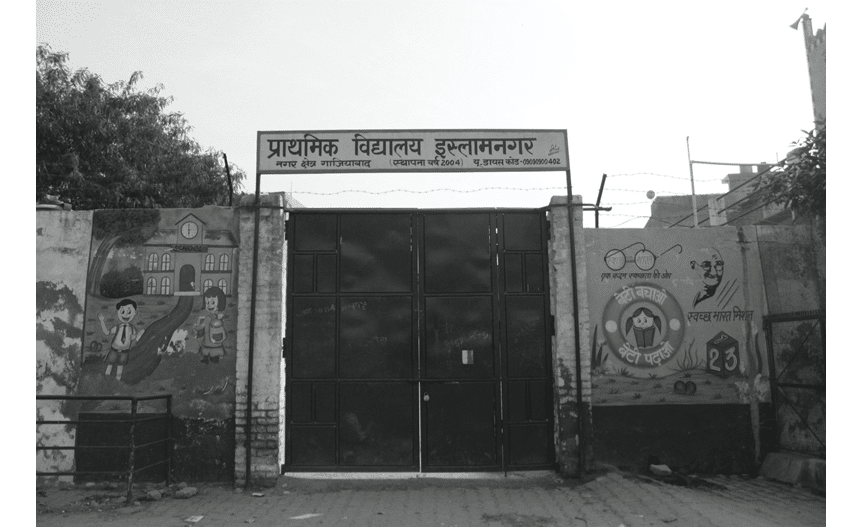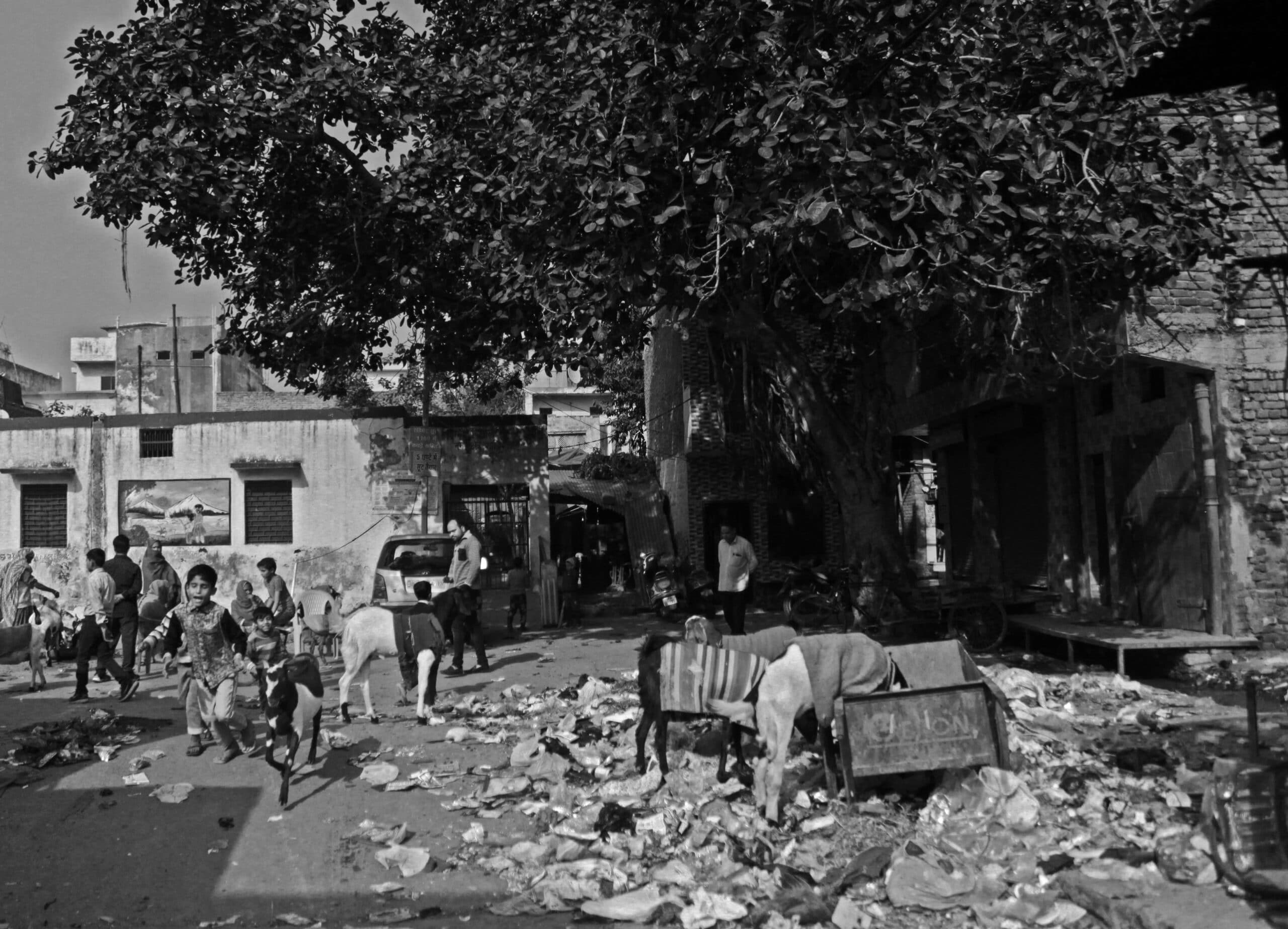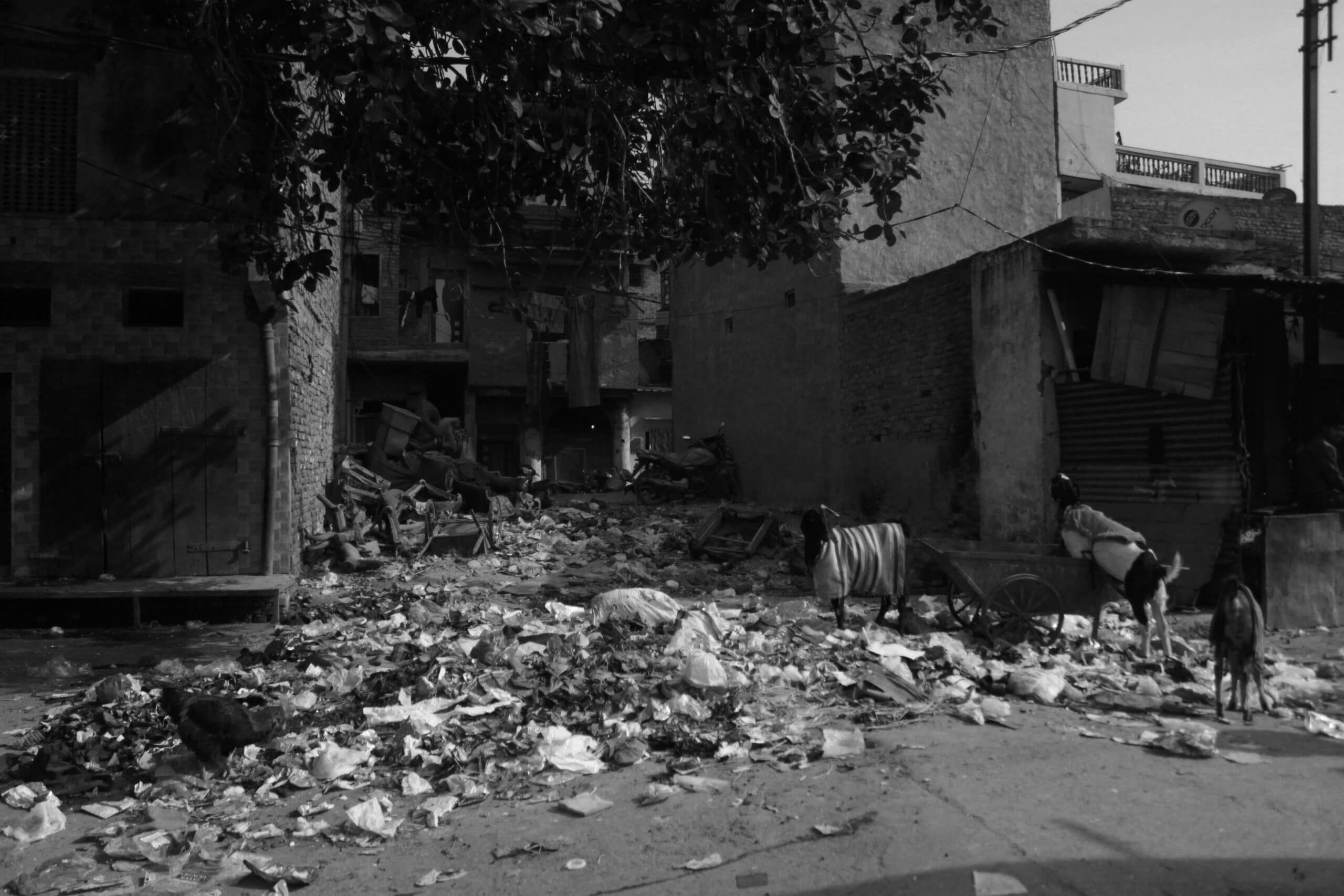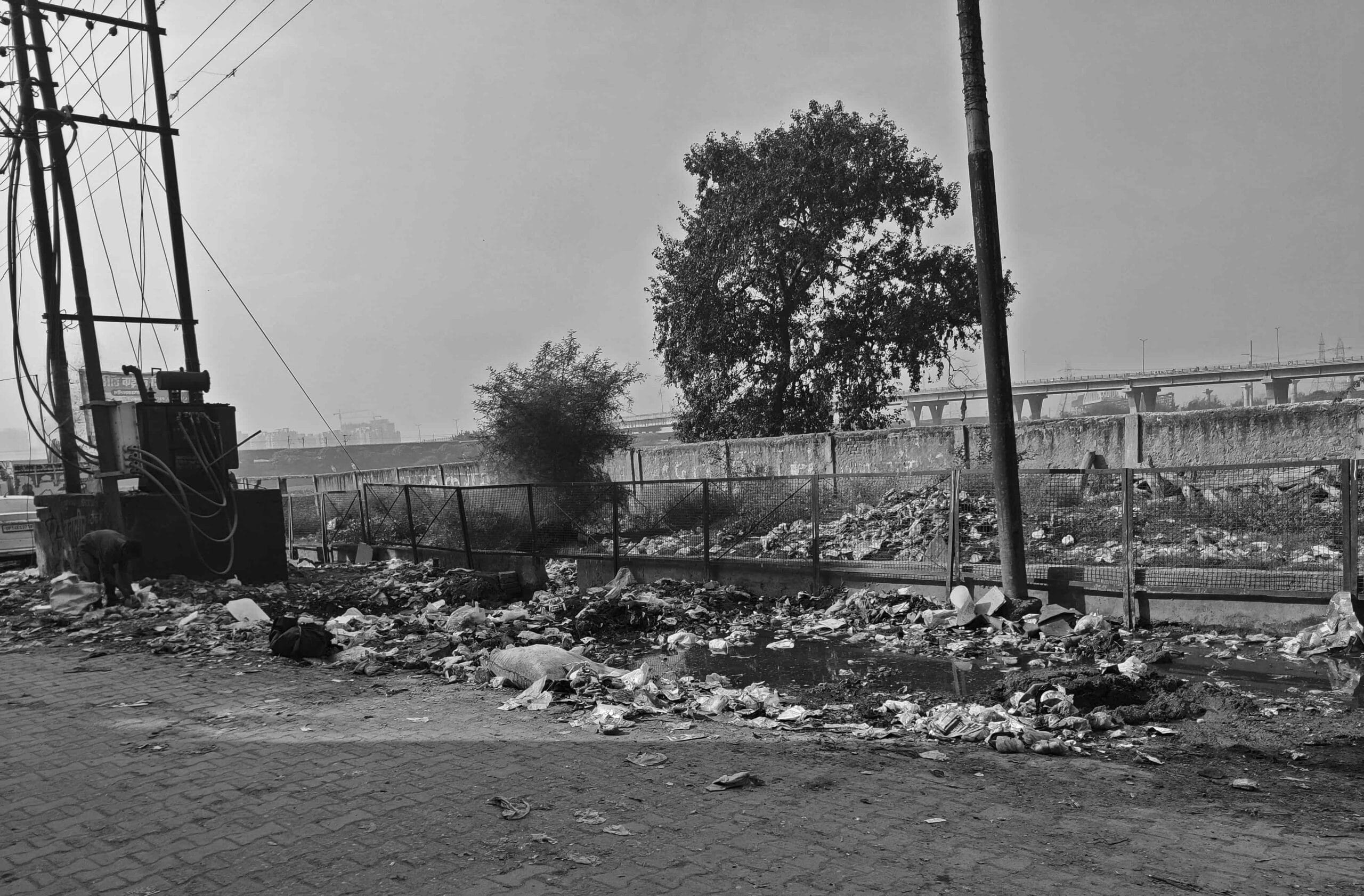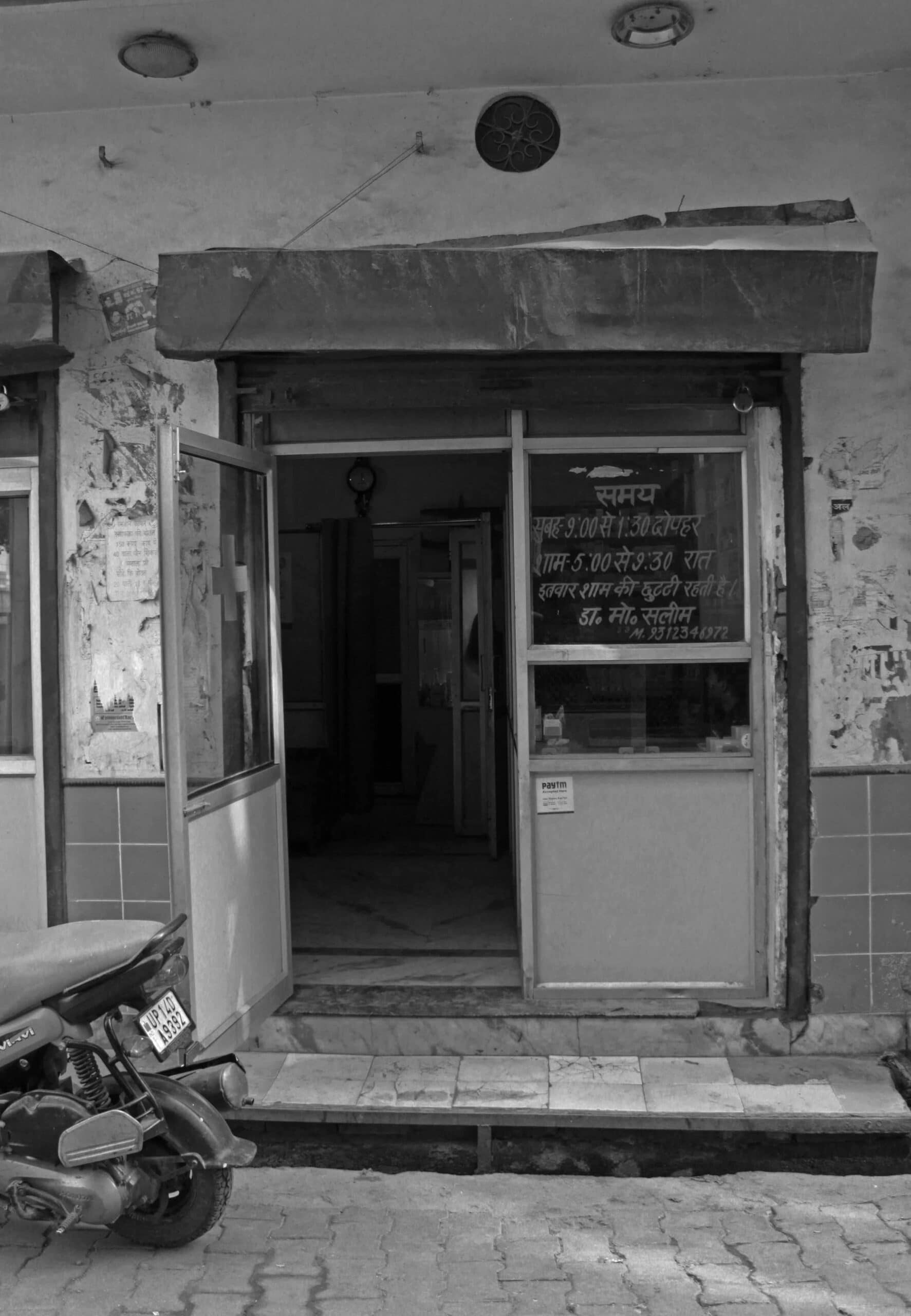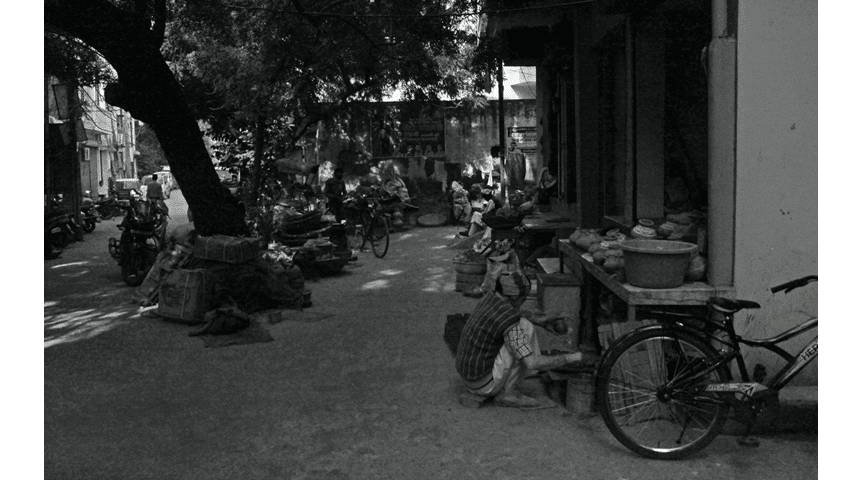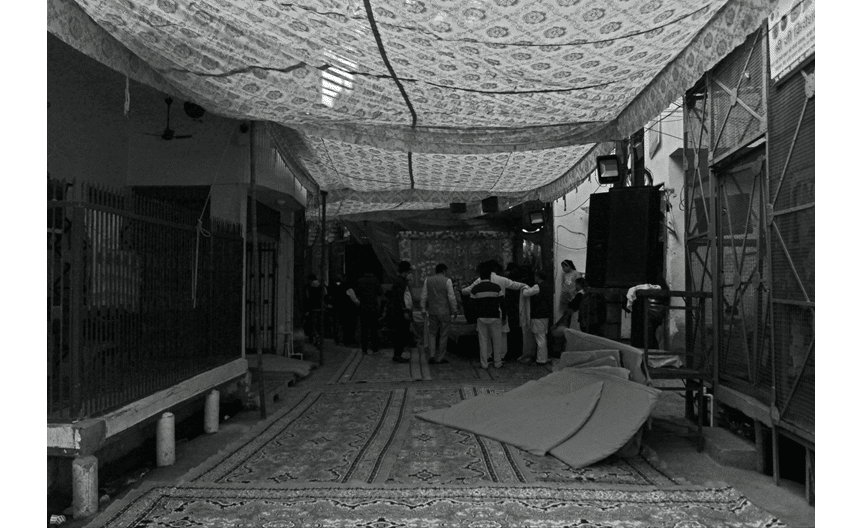As I travel from constituency to constituency in Western Uttar Pradesh this series will cover photographs and written text documenting the years gone by and the changes that occurred leading to prevailing social conditions.
In Ghaziabad, one of the primary concerns is a garbage dump and the negligible actions by the Nagar Nigam. This has contributed to the poor health infrastructure and affected the minority communities who are at the receiving end of this.
Women working and children playing in front of a primary school with garbage overflowing onto the road in Dasna Gate.
Garbage dump filling an entire plot and spreading onto the road in Dasna Gate. Residents say that the Nagar Nigam comes only once in a while to collect the garbage.
Open drainage near MB Girls School and the residence area of Islam Nagar took the lives of four children.
Garbage and open drainage in front of MB Girls School in Islam Nagar. Stagnant water becomes a breeding ground for mosquitoes and other flies.
A clinic in Islam Nagar where patients are mostly daily wage labourers.
The market area that is also inhabited by people of Kumhar community in Pakki Sarai
MB Girls School is one of the only schools in Kaila Bhatta, Ghaziabad.
Lanes of Islam Nagar are inhabited by minority communities with overflowing open sewage.
Residents of the Brahmin-Baniya community in Pakki Sarai prepare the space for a temple festival.
The upper-caste lanes with cleaner open sewage and garbage.


